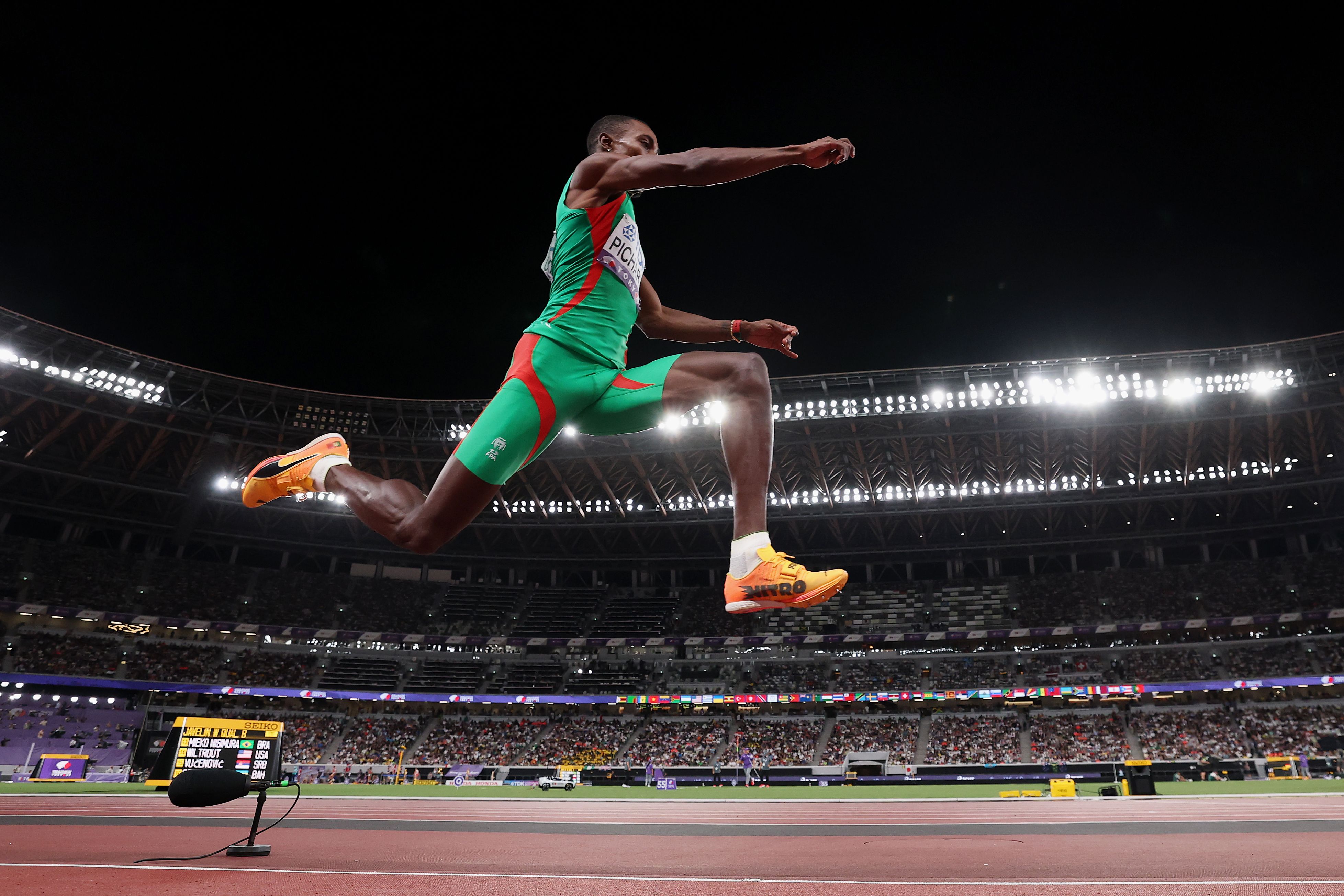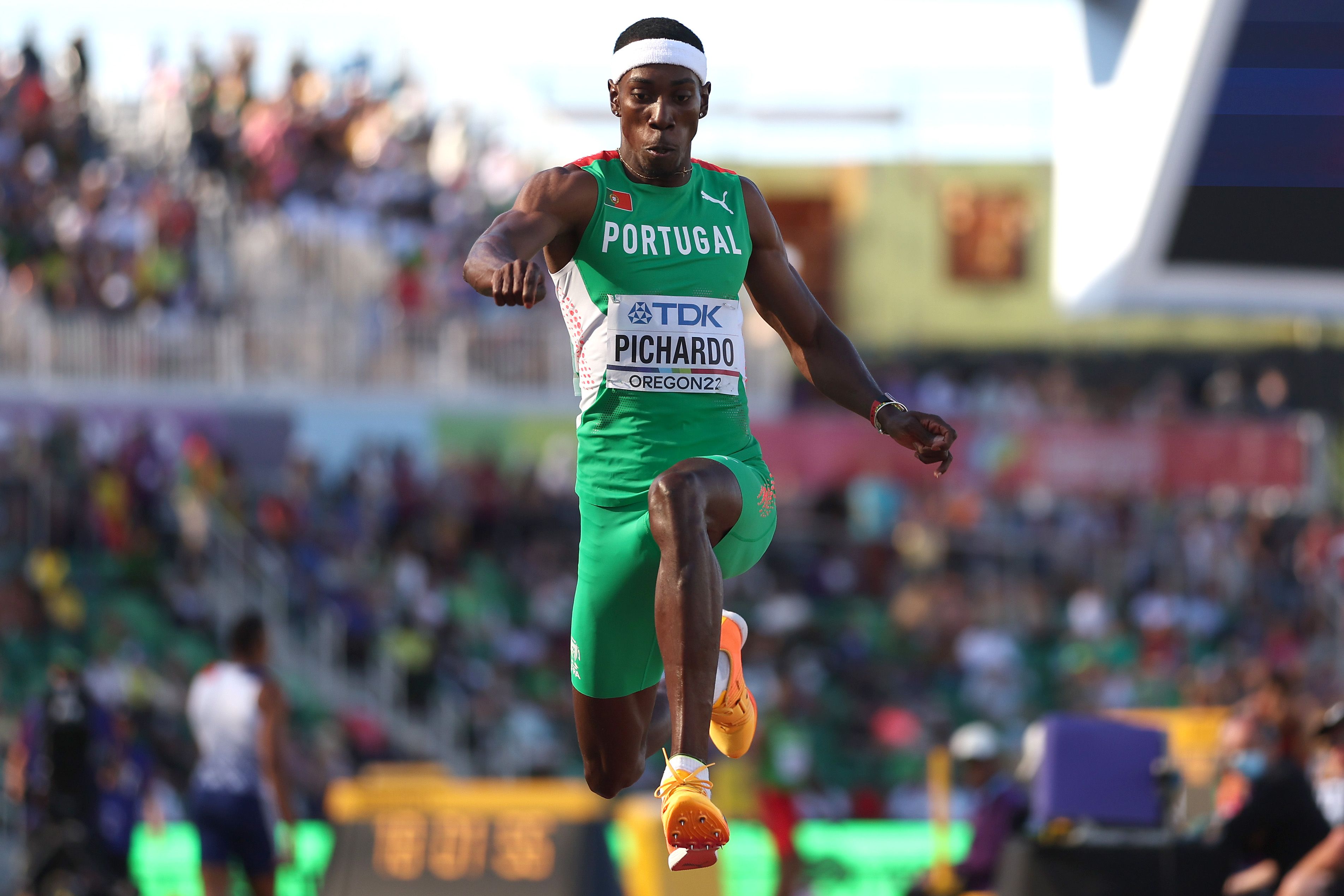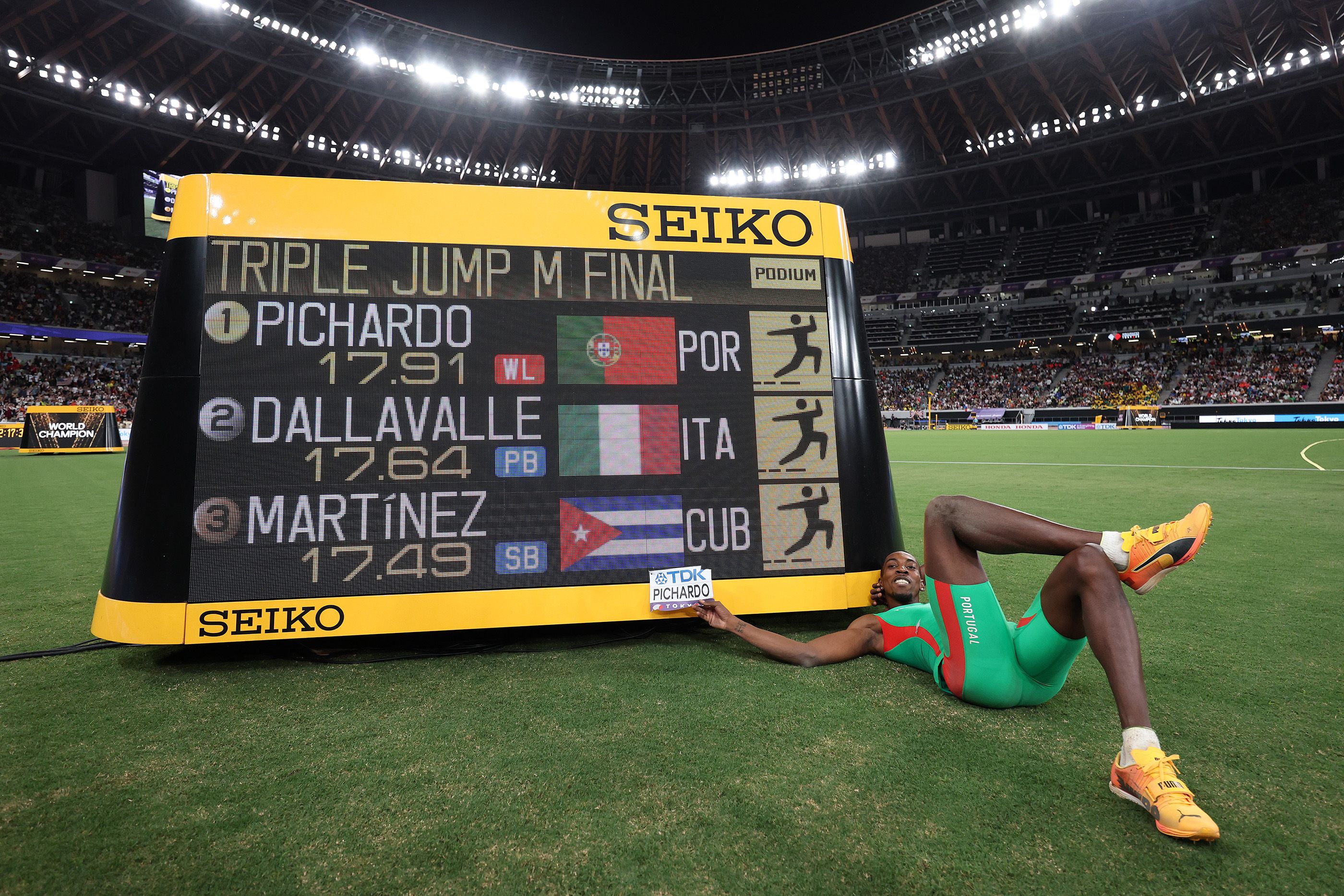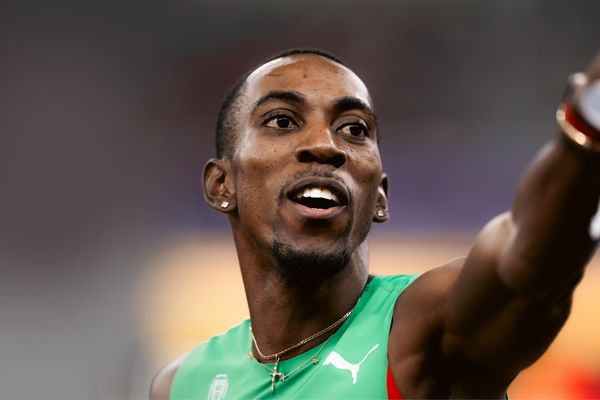The stadium in Tokyo trembled under the weight of silence. Pedro Pichardo stood at the end of the triple jump runway – 32 years old, five jumps behind him and no gold medal secured.
Italy’s Andrea Dallavalle had just taken the lead at the World Athletics Championships Tokyo 25, forcing the 2022 champion into one last test of nerve. For a few seconds Pichardo looked still, almost fragile, until the familiar rhythm began: the sprint, the hop, the bound, the jump. He soared and landed at 17.91m, before the stadium erupted.
Pichardo jumped to his feet, arms raised like a colossus, a smug grin across his face. He roared into the night: “Who is the best, baby? Who is the best?” But moments later, in the quieter aftermath, he allowed himself to admit the truth: “I was scared. But I always leave a bit for the last jump. My wife doesn’t like it much – she tells me to give it all in the first – but I saved something for the end.”

Pedro Pichardo in action at the World Athletics Championships Tokyo 25 (© Getty Images)
It was not just the claim of a champion, but the release of a man who has spent his life leaping over obstacles far greater than sandpits. Four years earlier, in the same stadium, he had become Olympic champion. Now, under the same lights, he was world champion once more. The distance was shorter than some of his best, but the symbolism was greater: a career still alive and an athlete still hungry, still defiant.
For Pichardo, triumph is rarely just about medals. It is about family and perseverance. Born in Santiago de Cuba, he spent his adolescence making endless train journeys to Havana to chase competitions and opportunities. His father Jorge, once an athlete himself until a knee injury ended his career, never left his side. He became more than a coach – he was a strategist, a scientist and a dreamer who believed that a new technique could push his son past human limits.
“My father studied all the styles of jumpers – Russian, American, English – and tried to mix them all,” Pedro recalls. “He still has booklets with sketches, with stick men, with angles. The way I jump today is because he sat down and studied everything. Everything I achieved in sport was for him. He fought a lot for me.”
That devotion has shaped Pichardo’s entire philosophy. When he speaks about his career, it is never in isolation. The medals in Tokyo, Eugene and Paris – they are milestones, but also chapters in a father-and-son collaboration stretching back decades.

Pedro Pichardo at the World Athletics Championships Oregon22 (© Getty Images)
“My father didn’t let me stop,” Pichardo said after the World Championships. “Last year my mind wasn’t very good. I wanted to retire. But he asked me to do at least this year, 2025. He has been the one keeping me strong mentally. This medal is for my father, it will stay in his house.”
Leaving Cuba in 2017, Pichardo found not just a new passport, but a rebirth. By August 2019, he was eligible to wear the Portuguese kit in international competitions. He carried it with pride and since then, he has given Portugal not only medals but also a figure to look up to. Olympic champion in 2021, world champion in 2022, and now again in 2025 – he is one of the country’s most decorated athletes. He does not hide what he wants his legacy to be. “Winning a place in history – that’s what I would like,” he says. “I want people to think of Pedro as the person who never gives up.”
The gold medals, he insists, are not the finish line. For years, Pichardo carried in his mind the almost mythical figure of Jonathan Edwards’s 18.29m, the world record set in 1995 and still untouched three decades later. Pichardo has brushed close – 18.08m in 2015, 18.04m in 2024 – but never gone beyond. At the height of his career, he would analyse what it would take: the perfect body, the perfect mind, the perfect conditions. That hunger has not disappeared, but time has given it a different shade. What motivates him now is not only the possibility of a record but the joy of proving, again and again, that he can endure.

Pedro Pichardo celebrates his win at the World Athletics Championships Tokyo 25 (© Getty Images)
And perhaps that evolution explains his other great dream, one that reaches beyond medals and distances. In quieter moments, Pichardo talks about his future role as a teacher and a mentor for Portuguese athletics.
“I would like kids to have the opportunity to achieve what I have, or even more,” he says. “I would like to teach them what my father taught me, to see if we achieve something. I don’t want that I finish my career and that there’s nobody else in triple jump. Instead of five Olympic champions in Portugal, I want there to be 10 or 15, like in Cuba.”
His legacy, then, may not be measured only in metres but in the athletes who follow him – proof that the man who once chased perfection is now preparing to share it.
Pichardo has already spoken of retirement after the Los Angeles Games in 2028. “I had promised my mother years ago that I would end up at the Los Angeles Olympic Games,” he explains. That would mark almost two decades at the highest level, a remarkable feat for a discipline that punishes the body as much as the triple jump does.
Yet the fire is not out. Paris 2024 brought silver, but he returned in Tokyo to prove he was still capable of gold. And when he leapt into history once more in 2025, he showed why. Because for Pichardo, the last jump is never the end. It is the chance to prove, once again, that he is the man who never gives up.
Ainhoa Serrano for World Athletics
Produced as part of the World Athletics Media Academy project


AloJapan.com